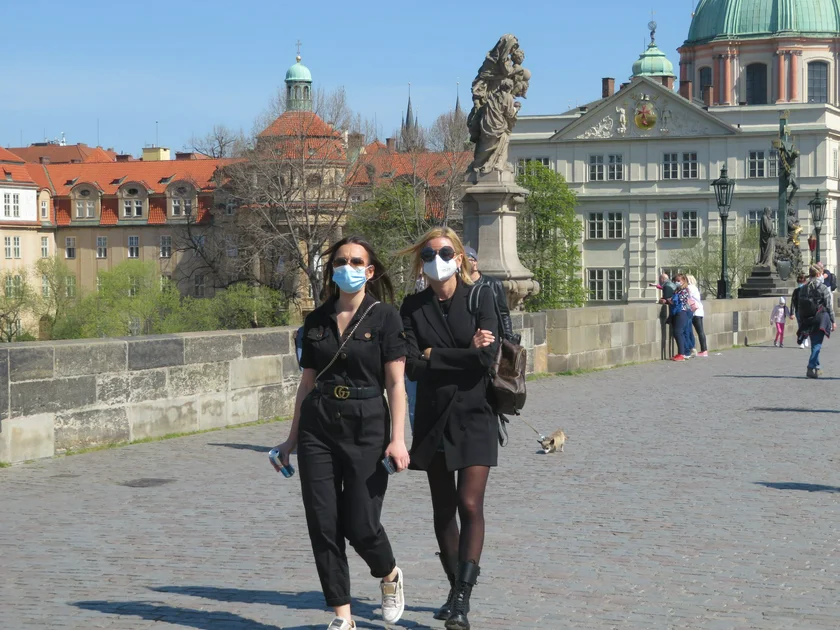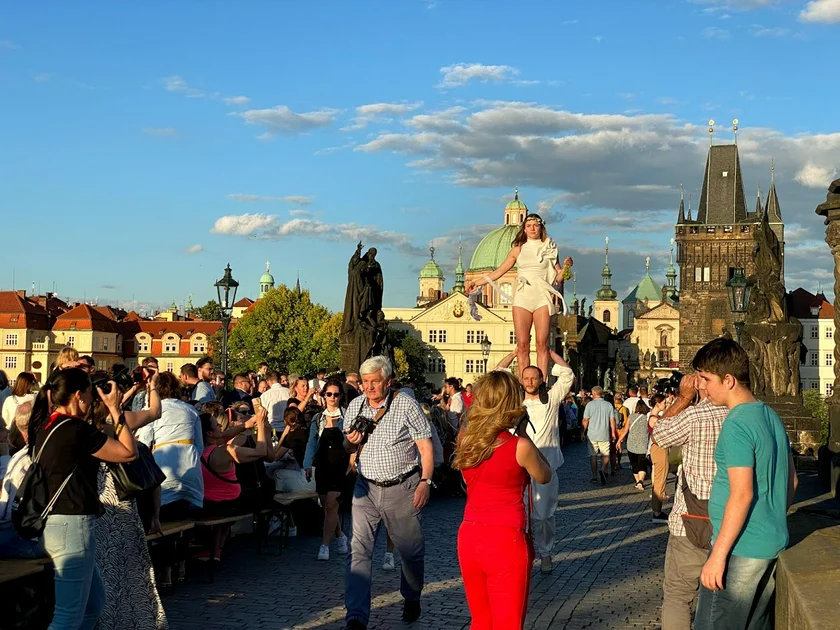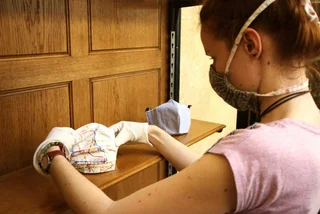Today marks the second anniversary of the lockdown due to coronavirus. The government on March 15, 2020, declared that the free movement of people would be restricted as of midnight at the start of March 16. People were only allowed out of their residences to shop for necessities or to go to work. An exception was made for people to walk in a park or the countryside, but they were supposed to maintain a distance from others.
The lockdown helped to slow the first wave. New daily cases peaked at 377 on March 27 and then began to decline. Relaxations of the lockdown rules began April 7 with some outdoor sports allowed, but free movement remained restricted until April 24, when groups of up to 10 people were allowed outside.

The first Covid case was confirmed in the Czech Republic on Feb. 29, and a state of emergency was declared on March 12. Masks were required outside of the home as of March 19. This was changed to masks being required only in interior spaces as of May 25.
Before vaccines became available in the Czech Republic at the very end of 2020, face masks, constant testing and quarantine, and limited contact were the only ways to stop the spread of Covid.
The lockdown and subsequent restrictions on indoor seating at restaurants and pubs hit the Czech culinary sector hard, as income takeaway meals only made up for a fraction of the losses. Pubs were hit particularly hard. The Czech brewing sector also faced losses, as they had few outlets for beer in kegs, and the beer could not be stored as it spoils. Despite some government assistance, a large number of eateries went out of business.

The first wave ended by the start of the summer, and a banquet was held on Charles Bridge on June 30, 2020, with a 515-meter-long table that could seat 2,000 people.
Declaring the pandemic over, though, proved a bit premature. It returned in September 2020 with a wave that lasted until the end of May 2021. The banquet became a political issue, with then-prime minister Andrej Babiš (ANO) blaming the banquet for a later rise in Covid cases and Prague Mayor Zdeněk Hřib (Pirates) denying there was any link.
While the first wave at its height had hundreds of cases per day, the second wave saw up to almost 18,000 new cases in a single day. The free movement of people was again restricted on Oct. 22, except for going to work, shopping, or going to parks or nature.
This was slowly relaxed to allow small gatherings of up to six people outside in the day, but a nighttime ban on movement remained except for going to work or walking a dog. A ban on movement between Czech districts took effect on March 1, 2021. There would be various strengthenings and relaxations of rules until April 12, 2021, when the state of emergency ended.
A third Covid wave started at the end of October 2021, reaching a peak of over 57,000 cases in a single day on Feb. 1, 2022. Numbers had been declining recently but have started to increase again due to a new subvariant of Omicron called BA.2.
The current government of Prime Minister Petr Fiala, which took office Nov. 28, 2021, says it does not plan to reimpose lockdowns. Due to widespread vaccination, the course of the disease was not as severe in most people who caught the virus. Hospitalizations remain relatively low, despite the high infection numbers.
Since the beginning of the pandemic, 39,248 people have died from Covid; 3,707,588 have been infected (not counting reinfections); 6,855,228 people have been full vaccinated; and 4,056,347 have had booster shots. The population of the Czech Republic is 10.7 million.












 Reading time: 3 minutes
Reading time: 3 minutes 
































